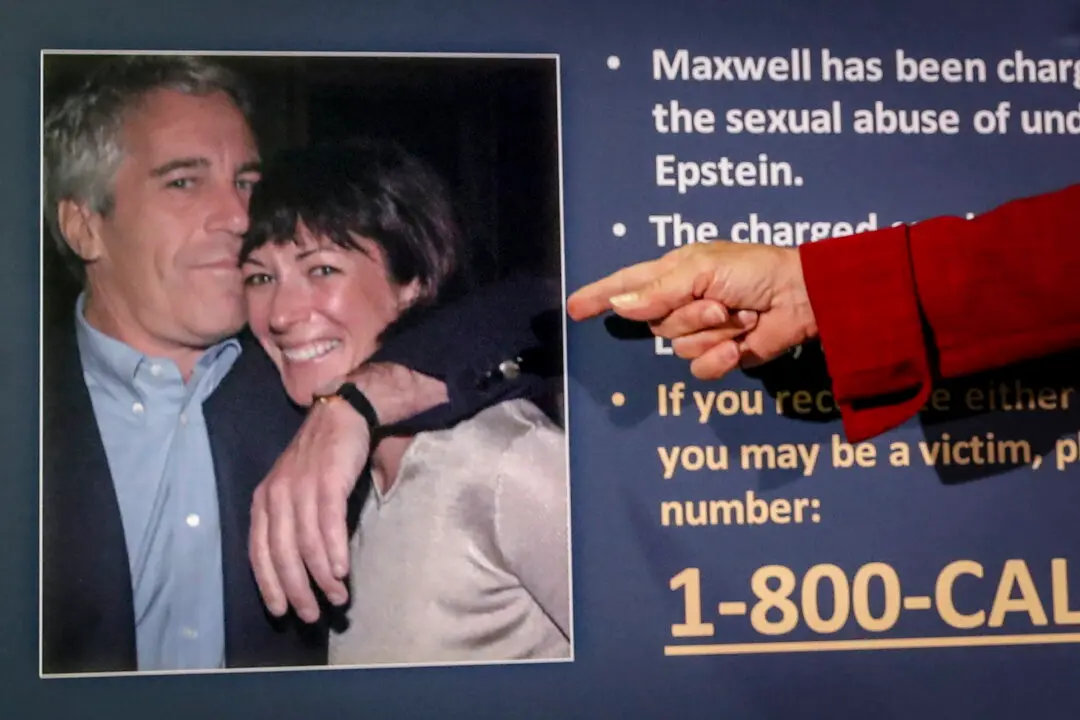Former socialite and convicted sex trafficker Ghislaine Maxwell told Britain’s Talk TV in a jailhouse interview that she believes her former associate and disgraced financier Jeffrey Epstein was murdered.
Epstein, who was facing multiple charges of sex trafficking of minors, was found dead in his cell at the Metropolitan Correctional Center (MCC) in New York City in August 2019.





